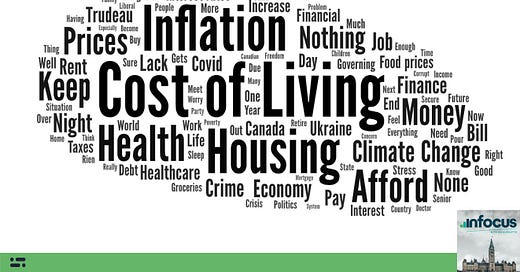People don’t vote for you because of what you do, but because of why you do it.
Why the GST Holiday and Rebate Cheques Is Unlikely to Move the Needle for Trudeau’s Liberals
To paraphrase Simon Sinek in more political terms —“People don’t vote for you on what you do, but why you do it”.
This feels especially relevant when analyzing the Trudeau government’s recent announcement of a GST holiday and rebate cheque. On the surface, these measures offer some relief to Canadians stressed by the rising cost of living. We have heard…




